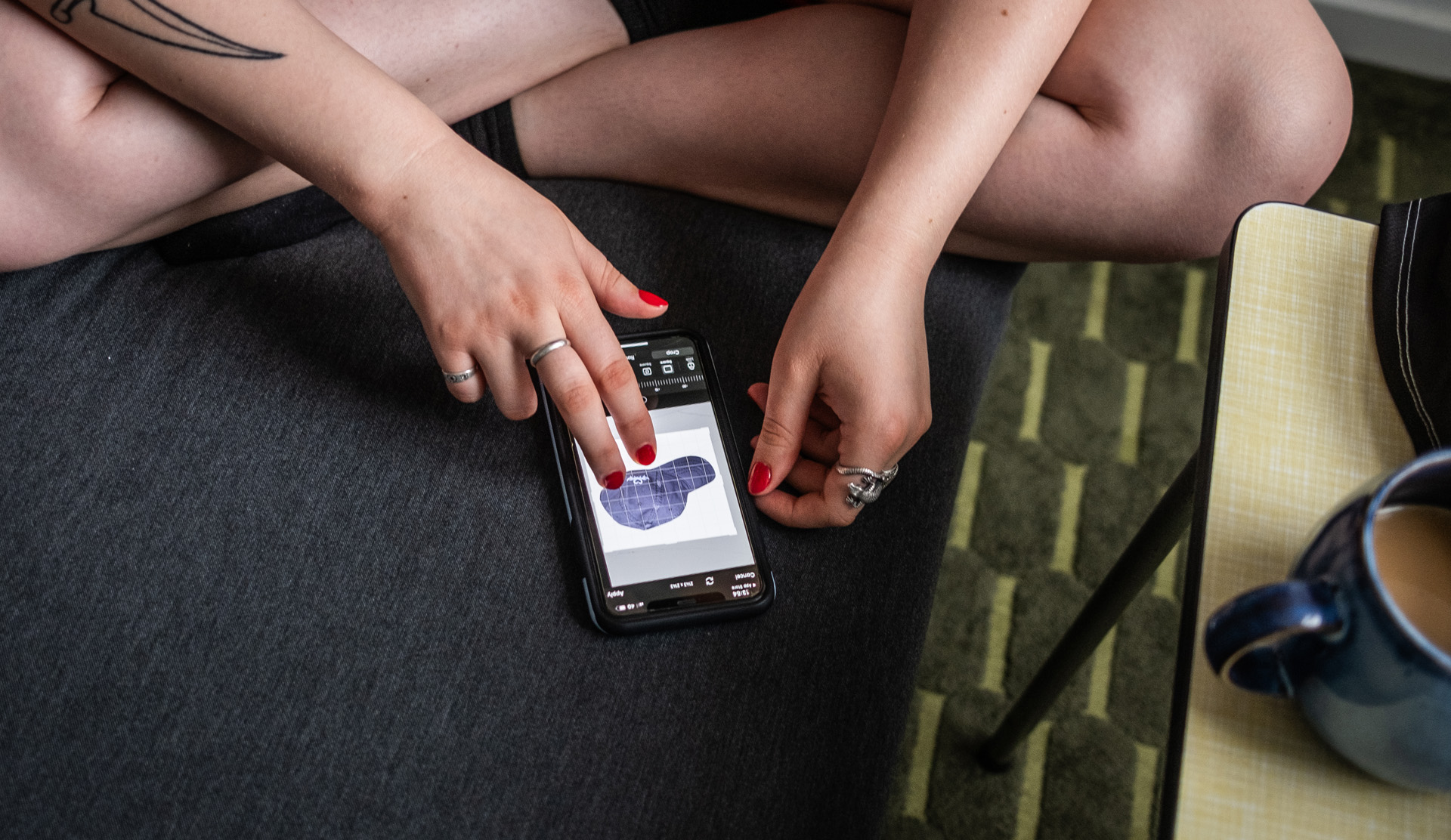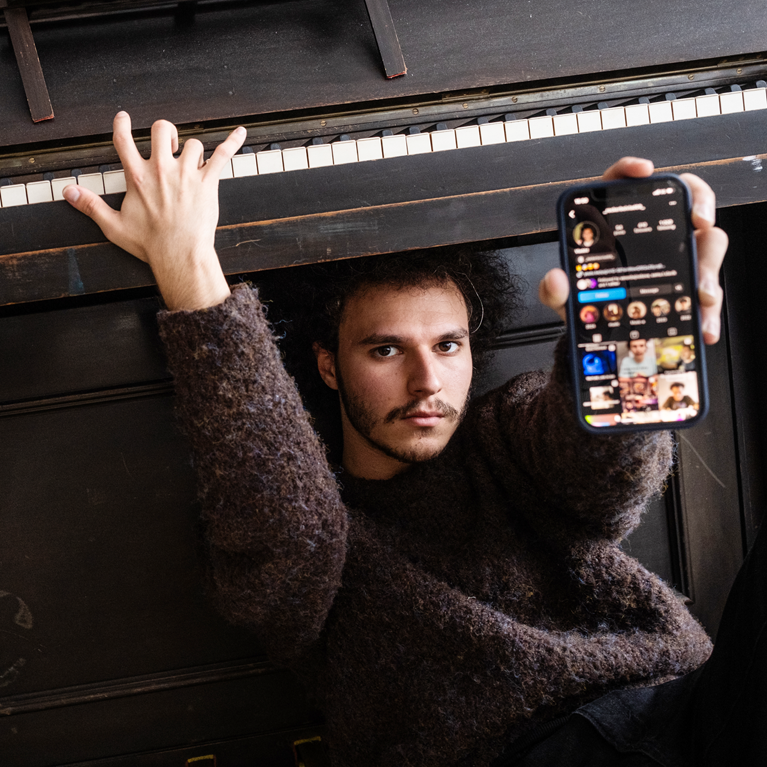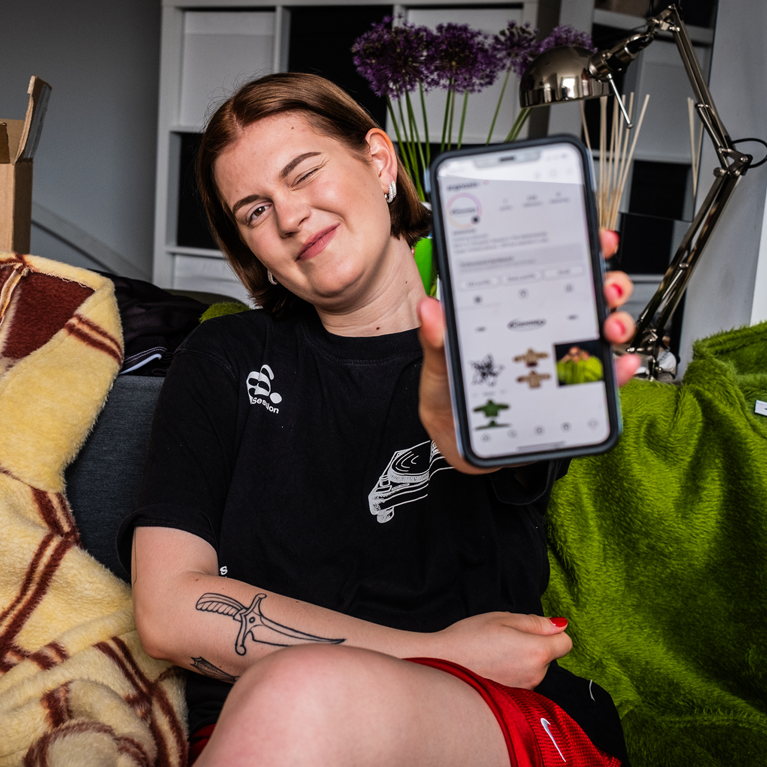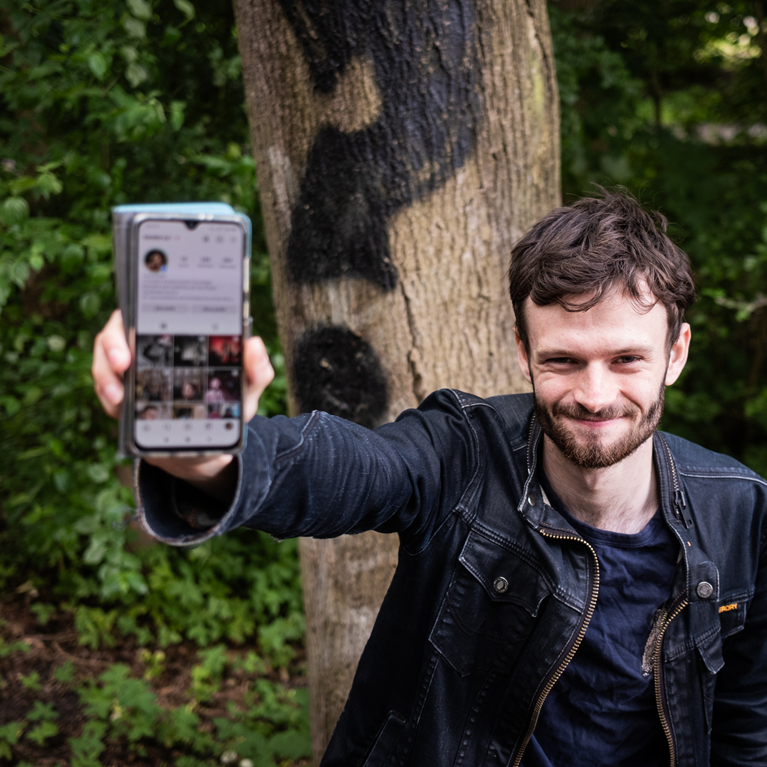
Self-promotion is now demanded
You are the brand
Conal Soutar loves to show off his cooking skills on his Instagram Stories. You can often see him whipping up a meal for date nights with his girlfriend or preparing fresh pasta for his part-time job as a chef at famed Italian restaurant Gustatio.
But the twenty-three-year-old Irish international relations student admits to cherry-picking the positive moments from his life. ‘In reality, I struggle a lot with eating. It’s often all the good parts, messing around, showing the final product, but not the number of times you mess up or when you hate yourself.’
Not too long ago, people would mainly put photos on their social media for the benefit of their friends. Influencers with their carefully curated online existence were a rare phenomenon. But now, it seems as if everyone is an influencer, selling themselves on their Instagram account: an extra shiny version of you celebrating all your successes.
Digital natives
‘It’s very common now for young people to promote themselves’, confirms UG researcher Qian Huang, who focuses on digital youth culture and creative labour. Those born after the dawn of social media are called digital natives because of how strongly they are embedded in digital culture, she explains. To them, it’s no more than normal to have an online life as well as an offline one.
It’s often all the good parts, but not the number of times you mess up
The advantages are clear: on social media, you can reach far greater numbers of people, which makes building a name for yourself much easier. Take arts, culture and media student Agne Rinkeviciute (23) from Lithuania, who founded streetwear fashion brand Argnosis. She has an Instagram profile for her company as well as a personal account and uses both to garner attention for her work. ‘Someone might get inspired by it or will want to collaborate with me’, she says.

Vlad Bazga – @_rockerboivlad69_
Or take Vlad Bazga (21) from Romania, another arts, culture and media student who promotes his short film Candela and his music through Instagram. He uses his online profile not only to gain an audience, but also to find new artists to work with. ‘I can get in touch with people through my art and it’s so much easier now than in the past’, he says. ‘Without social media, you didn’t get as much exposure.’
Social contract
But Huang warns that this type of self-promotion has become part of a social contract in a very neoliberal ideology, where it overlaps a lot with self-commodification: ‘It’s the idea that we need to sell ourselves as a product, where you have to find a unique selling point for yourself.’
This is especially true with the rise of the gig economy and freelance work, she says. ‘You have to show you’re valuable as a potential hire. And it’s adding an extra burden, this invisible labour.’
Moreover, Huang argues, it becomes an expectation to sell yourself on social media. ‘If you’re not promoting yourself, it’s your own fault if you cannot find a job. I will say that kind of mentality has been seeping into people’s lives right now.’
Vlad doesn’t want to think of himself as a product, though. ‘I promote the ideas that I have, not myself’, he says. He feels his online promotion is an art in itself. ‘I promote art through art. It’s a fountain of creativity that I release.’
Sacrificing privacy
Huang also says that this social contract forces young people to sacrifice part of their privacy, because they are sharing information about themselves to get ahead. ‘It’s a trade-off. Society is pushing people into making a cost-benefit calculation. How much can I get out of this, and how much does it cost me? How much of my work, my everyday life, do I want to share online?’
How much can I get out of this, and how much does it cost me?
Agne is cautious to keep her personal life separate from the brand Argnosis. ‘I want my brand to be my work, my company, my dream, but it’s not my whole life’, she explains. She sees herself as a brand owner rather than a brand, but she still uses her private profile to promote her work: ‘My personal Instagram is like a behind-the-scenes of my work. I want people to know what I’m doing, but I create my identity separate from Argnosis.’
But she admits she holds back from posting too often. ‘I’m scared because the concept is still developing and I don’t want to fuck it up’, Agne says. ‘There’s a thin boundary between posting in a safe way and feeling insecure. Social media is a sketchy world, so you need to be awake all the time.’

Agne Rinkeviciute – @argnosis/@agne___ani
That’s something that Vlad feels as well. ‘I like attention’, he says. ‘When I post something, it’s very nice to see people’s reactions. But I don’t want to get too deep into my online persona. Social media is like a drug, because you can lose yourself in it.’
Authenticity
To be successful on social media, says Huang, the golden rule is to be authentic. Or at least, to seem authentic, because she’s sceptical of the extent to which a person can be their true self on platforms like Instagram: ‘I think it’s more of a performed authenticity.’
Influencers tend to show some kind of quirkiness or imperfection to imply they’re authentic. ‘Because if you present yourself as perfect, it starts feeling a bit too promotional’, Huang explains.
Social media is like a drug, because you can lose yourself in it
The key is to maintain a balance: keep up a facade, but let a bit of vulnerability leak through your posts. That’s a tight rope to walk, though. ‘Being authentic online is very risky and can bring you a lot of backlash.’
Conal is all too aware of that. ‘You can get it wrong really fucking easily. I’ve had that happen and it’s something you’re constantly fighting.’
In addition to studying, he performs as a stand-up comedian at vegan cafe Lust and runs a comedy show at Usva. What started out as a hobby when he moved to Groningen five years ago quickly transformed into a form of social activism: ‘I reflect on politics a lot in my comedy because that’s what I’m interested in.’

Conal Soutar – @soutar.co
Trouble
Influencer work has become a must for ‘anyone who wants to have a social impact’, Huang says. But speaking out for social justice or changing social norms and values might offend some people. And then that sacrifice of privacy, the information they’ve shared about themselves, can be used against them and expose them to online attacks and harassment, she warns.
Conal informs his followers about ongoing protests and marches in the city, whether it’s about the LGBTQ+ community or about the situation of Palestinians in Gaza. But there are certain limitations to what he can post, he feels: ‘I am kind of worried that at some point, the university will say that it’s enough.’
There’s a lot that can go wrong when you’re trying to stay relevant and original, he knows. Once, he got into trouble for posting about messing around at work. ‘You have to keep up with trends. That’s what drives the algorithm and clicks, but it’s also not really what you want to do.’